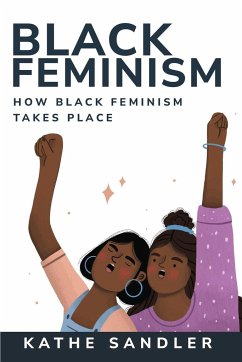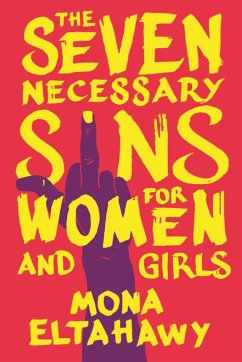
Feminism and Black Activism in Contemporary America
An Ideological Assessment
Versandkostenfrei!
Versandfertig in 1-2 Wochen
70,99 €
inkl. MwSt.

PAYBACK Punkte
35 °P sammeln!
Feminism and Black Activism in Contemporary America, by Irving D. Solomon, is an interesting attempt to analyze two of the most important sustained social movements of the mid-twentieth century. Solomon's politics are feminist, and he is sympathetic to both movements. . . . Solomon isolates three schools, legal, cultural, and economic, in both movements. After an introduction explaining his methodology, he gives a history of both black activism and contemporary feminism and then considers each school, finishing with an epilogue. Solomon is best in the extended discussions of his schools of fem...
Feminism and Black Activism in Contemporary America, by Irving D. Solomon, is an interesting attempt to analyze two of the most important sustained social movements of the mid-twentieth century. Solomon's politics are feminist, and he is sympathetic to both movements. . . . Solomon isolates three schools, legal, cultural, and economic, in both movements. After an introduction explaining his methodology, he gives a history of both black activism and contemporary feminism and then considers each school, finishing with an epilogue. Solomon is best in the extended discussions of his schools of feminism. Solomon's explication of the rich independent history of the legal branch has not been done before in such a lucid and condensed way. . . . [T]his is the only book currently available that looks at the black activist and feminist movements together. Solomon makes a defensible case for his analysis, and he sustains his argument with a great deal of useful information, analyzing `classic' women's liberation texts, searching out archival material, and conducting some very interesting interviews. Journal of American History Though the race and gender protest movements that began in the 1950s are often linked in our minds, the connections between them have not been studied systematically. In the first thorough analysis of the common ground between these movements, Solomon explores the ideological and behavioral relationships, the roots, shared goals and responses, parallel strategies, and common obstacles that link contemporary feminism and black activism. Focusing particularly on the dynamic mid-twentieth-century period of protest, he examines the various legal, cultural, and economic orientations that have characterized these movements and given them special force. Solomon first reviews the long protest history of black activism and feminism in the United States. He then discusses three different ideological stances that have characterized segments of both movements. The first, described as the legal approach, seeks a more egalitarian society, with full social integration through traditional, legal, and electoral channels. The cultural-nationalist view, which sees little possibility for meaningful reconciliation, stresses radical and unorthodox alternatives that strengthen self-definition and power apart from the dominant group. In practice, these two approaches may overlap. The third protest orientation is based on Marxist-socialist economic principles, particularly the contemporary neo-Marxist view that looks to a total social upheaval to change the cultural fiber of society as well as its economic institutions. Directed to both the academic and general reader, this book will be a useful resource for those with an interest in black studies, women's studies, and contemporary politics, as well as related areas in sociology, political science, and history.














